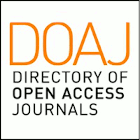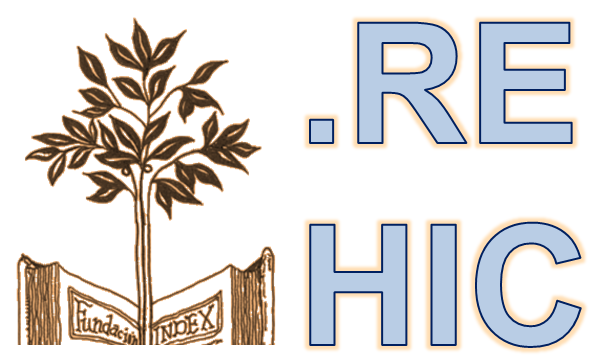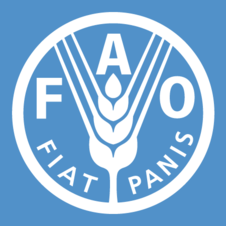LA TOMA DE DECISIONES EN SALUD PÚBLICA: UNA REVISIÓN DEL PROCEDIMIENTO DESDE EL ENFOQUE RACIONAL
Abstract
Se presenta una revisión que contextualiza y define el uso de las habilidades cognoscitivas para la toma de decisiones dentro del campo de la salud pública, y analiza cómo éstas se pueden desarrollar en el ámbito de la formación de recursos humanos en salud. Se llevó a cabo una investigación documental de la literatura sobre el tema, teniendo como directriz el seguimiento a los principales autores y sus referencias hasta el año 2005. Los documentos encontrados fueron sujetos a un proceso de selección por pertinencia del tema y fueron sujetos a análisis de contenido. A partir de la propuesta de Herbert Simon en 1956 la teoría de la toma de decisiones es definida y posteriormente se encuentra a una serie de autores que analizan el proceso e identifican y operacionalizan las habilidades cognoscitivas que lo generan. El proceso de toma de decisiones coincide más con un proceso de orden racional que de orden heurístico o casual. Los autores coinciden en que la toma de decisiones es un proceso intelectual que debe ejercitarse y evaluarse en el personal que trabaja en el ámbito de la salud pública, debe formar parte de las competencias del personal de salud.
Abstract
A review that contextualizes and defines the use of cognitive skills for decision-making within the field of public health, and discusses how they can be developed in the field of training of human resources in health. Was conducted documentary research literature on the subject, taking as a guideline to follow the lead authors and references to 2005. The documents found were subject to a selection process by relevance of the topic and were subjected to content analysis. Since the proposal of Herbert Simon in 1956 the theory of decision making is defined and is subsequently a number of authors who analyze the process and identify and operationalize cognitive skills that generate it. The decision making process coincides with a rational order processing heuristic or random order. The authors agree that decision making is an intellectual process that must be exercised and evaluated in the staff working in the field of public health, should be part of the skills of health workers.
Palabras Clave: Toma de decisiones, habilidades, competencias, salud pública
Downloads
References
Agencia de Noticias Notimex 2006. Mantendrá SSA hasta fin de año medidas sanitarias en Quintana Roo. Hallado en http://www.notimex.com.
Presidencia de la República Mexicana 2010. Coordina gabinete ayuda por Stan. Hallado en http://fox.presidencia.gob.mx/buenasnoticias/?contenido=21122&pagina=186. Acceso.
Presidencia de la República Mexicana 2010. Concluyó sin brotes epidémicos emergencia por "Stan": Julio Frenk. Hallado en http://fox.presidencia.gob.mx/buscador/index.php?contenido= 21944&pagina=1&palabras=stan.
Ramos, H. I. 2010. Evaluación de las habilidades cognoscitivas para la toma de decisiones: un estudio comparativo entre los estudiantes y los profesionales de la salud pública. Editorial Centro Universitario de Ciencias de la Salud, Universidad de Guadalajara 130 pp.
Laudon, K. y J. Laudon 2004. Sistemas de información gerencial. Prentice Hall 380 pp.
Klein, J. 2002. Prediction of success for school principal candidates by means of a decision-making test. J Educ Adm. Vol. 40 No. 2/3: 118-35.
Wang, Y., D. Liu G. Ruhe 2005. Formal description of the cognitive process of decision making: Tercera Conferencia Internacional sobre Informática Cognitiva de la IEEE. Calgary: IEEE.
Bloom, B., M. Engelhart, E. Furst, W. Hill y D. Krathwohl 1956. Taxonomy of educational objectives: The classification of educational goals. Handbook 1: Cognitive domain. New York: David McKay.
Gagne, R 1996. The Conditions of Learning. Forth Worth: Harcourt Brace College.
Marzano, R., D. Pickering y J. McTighe 1993. Dimensiones del Aprendizaje; 1990. Traducido por: L. F. Gómez. Guadalajara, México. ITESO.
Idem.
Area Education Agency 267 2005. Introduction to thinking skills. Hallado en http://www.aea267.k12.ia.us/cia/framework/thinking.
Simon, H. A. 1976. Administrative behavior: A study of decision making processes in administrative organizations. Nueva York: Free Press 189 pp.
Laudon, K. y J. Laudon, Op.cit.
Idem.
Newell, A. y H. Simon 1972. Human problem solving. Nueva Jersey: Prentice Hall.
Wang, Y.,et al, Op. cit.
Laudon, K. y J. Laudon, Op. cit.
Wang, Y.,et al, Op. cit.
Lindblom, C 1959. The science of muddling through. Public. Adm. Rev. No.19: 8-18.
Simon, H. A. Op. cit.
Frey, D. 1981. Reversible and irreversible decisions: Preference for consonant information as a function of attractiveness of decision alternatives. Person. Soc. Psych. Bull. No. 7: 621-6.
Frey, D. y M. Rosch 1984. Information seeking alters decisions - The roles of novelty of information and decision reversibility. Person Soc Psych Bull. No.10: 91-8.
Klein, J. 1999. The relationship between level of academic education and reversible and irreversible processes of probability decision-making. High. Educ. No. 37: 323-39.
Idem.
Klein, J. 2002,Op. cit.
Pozo, J. 1992. Teorías Cognoscitivas del Aprendizaje. Madrid: Morata.
Argudín, Y. 2005. Educación basada en competencias. Nociones y antecedentes. México, D. F.: Trillas. 140 pp.
Boyatzis, R. 1982. The competence manager. A model. Nueva York: Wiley 231 pp.
Klein, J. 1999
Argudín, Y. 2005, Op. cit.
Pozo, J. 1992, Op. cit.
Minister of Learning of Saskatchewan 2005. Health education: Decision making process. Hallado en http://www.sasked.gov.sk.ca/docs/health/health6-9/g7dec.html.
Klein, J., J. Orasanu y R. Calderwood 1993. Decision making in action: Models and methods. Norwood: Ablex.
Orasanu, J. 1993. Decision-making in the cockpit. En: Weiner, E., R. Helmreich, y B. Kanki, eds. Cockpit Resource Management. London: Academic Press. Pp. 145-70.
Klein, J., J. Orasanu y R. Calderwood 1993, Op. cit.
Klein, J. 2002
Klein, J. 1993. The relationship between level and type of education and the use of a comprehensive approach to decision making. (Disertación doctoral no publicada). Israel: Bar Ilan University.
Lehman, R., R. Lempert y R. Nisbett 1998. The effects of graduate training on reasoning: Formal discipline and thinking about everyday-life events. Am. Psych. No. 43: 431-42.
Lehman, R. y R. Nisbett 1990. A longitudinal study of the effects of undergraduate training on reasoning. Dev. Psych. No. 26: 952-60.
Houts, J., R. Denmark, S. Rosenfield y J. Tanenbaum 1980. Problem solving and personality characteristics related to differing levels of intelligence and ideational fluency. Contemp. Educ. Psych. No. 5: 118-23.
Cornelius, S. W. y A. Caspi 1987. Everyday problem solving in adulthood and old age. Psych. Aging. No.2: 144-53.
Heyn, J., J. Barry y R. Pollack 1978. Problem solving as a function of age, sex, and the role appropriateness of the problem content. Exp. Aging. Res. No. 4: 505-19.
Hartman, S., O. Lundberg y M. White 1990. Effect of background and organizational position on executive planning. J. Soc. Psych. No. 130: 801-11.
Lipshitz, R. y O. Ben Shaul 1997. Schemata and mental models in recognition-primed decision making. En: Zsambock, C. y G. Klein, eds. Naturalistic decision making, expertise: Research and applications. Mahwah: Lawrence Erlbaum Associates. Pp. 293-303.
Klein, J. 2002. Op. cit.
Hernández, R., C. Fernández y P. Baptista 2003. Metodología de la investigación. México, D.F.: McGrawHill/Interamericana, 587 pp.
Stanovich, K. y R. West 1998. Individual differences in rational thought. J. Exp. Psych. Vol. 127 No. 2: 16188.
Randel, J., H. Pugh y S. Reed 1996. Differences in expert and novice situation awareness in naturalistic decision making. Int. J. Hum. Comp. Studies. Vol. 45 No. 5: 579-97.
Lipshitz, R. y O. Ben Shaul 1997. Op. cit.
Minister of Learning of Saskatchewan 2005, Op. cit.
Klein, J. 2002 Op. cit.
Wang, Y., D. Liu G. Ruhe 2005. Op. cit.
Klein, J. 1999, Op. cit.
Klein, J. 1999, Op. cit.
Rouse, W. B 1991. Design for success. Nueva York: Wiley.
Drucker, P 2002. La decisión eficaz. 2001. (Traducido por Bengoechea I). Bilbao: Ediciones Deusto.
Instituto Tecnológico y de Estudios Superiores de Monterrey 2004. El modelo educativo del Tecnológico de Monterrey. Hallado en http://www.sistema.itesm.mx/va/dide/inf-doc.
Conczi, A. 1994. Perspectivas internacionales sobre la educación basada en competencias; Conferencia Internacional sobre Educación Basada en Competencias. Prince Edward Island.
Argudín, Y. 2005, Op. cit.
Idem.
Crawford, D., D. Glendenning y W. Wilson 1996. La educación basada en competencias, tres comentarios sobre Canadá. En: Argüelles, A., comps. Competencia laboral y educación basada en normas de competencia. México, D.F.: Noriega. Pp. 221-43.
Argudín, Y. 2005, Op. cit.
Centro Universitario de Ciencias de la Salud 2005. Plan de estudios de la Maestría en Gerencia de Servicios de Salud. Documento no publicado. Guadalajara: Universidad de Guadalajara.
Instituto Nacional de Salud Pública 2005. Plan de estudios de la Maestría en Ciencias de la Salud Pública.Documento no publicado. Cuernavaca: Instituto Nacional de Salud Pública.
Minister of Learning of Saskatchewan 2005, Op. cit.
Bates, A. y G. Poole 2003. Effective teaching with technology in higher education. Foundations for success. San Francisco: Jossey-Bass.
Conczi, A. 1994, Op. cit.
Martínez, F. y O. Tello 2004. Vigilancia en salud pública: una perspectiva histórica. En: Martínez, F. N. et al., eds. Vigilancia epidemiológica. Madrid: Interamericana. Pp. 1-14.
Crawford, D., D. Glendenning y W. Wilson 1996. Op. cit.
Harrington, T. 1995. Assessment of abilities. Greensboro: University of Boston (No. de servicio de reproducción de documentos ERIC ED 389 960).
Fraenkel, J. y N. Wallen 2003. How to design and evaluate research in education. Boston: McGraw-Hill.
Ramírez, M. 2005. Elaboración de instrumentos. (Documento no publicado). Guadalajara: ITESM.
García, H., A. Faure, A. González y C. García 1999. Metodología de la investigación en salud. México, D.F.: McGraw-Hill/Interamericana. 108 pp.
Zorrilla, S., M. Torres, A. Luiz y P. Alcino 1997. Metodología de la investigación. México, D. F.: McGraw-Hill. 156 pp.
McGuire, C. y D. Babbott 1967. Simulation technique in the measurement of problem-solving skills. J. Educ. Meas. Vol. 4 No. 1: 1-10.
McGuire, C., L. Solomon y P. Bashook 1976. Construction and use of written simulations. New York: Psychological Corporation.
Trosset, C. 1998. Obstacles to open discussion and critical thinking. Change. Vol. 30 No. 5: 44-9.
Peri, A., R. Mosticoni, S. Mosticoni y M. Barbarito 2005. ITER: A computerized test to assess the decision making skills. Preliminary applications. Hallado en http://www.internationalmta.-org/1998/9804.html.
Klein, J. 2002. Op. cit.
Klein, J. 1999, Op. cit.
Greybeck, B., M. Orozco y S. Olarte 2003. Análisis del impacto del modelo educativo del ITESM sobre las HAV’s en los alumnos del Campus Guadalajara. (Documento no publicado). Guadalajara: ITESM.
Gestiópolis 2005. Toma de decisiones. Hallado en http://www.gestiopolis.com/recursos/checking/ prueba27.asp.
Minister of Learning of Saskatchewan 2005, Op. cit.
Peri, A., R. Mosticoni, S. Mosticoni y M. Barbarito 2005, Op. cit.
Gestiópolis 2005. Op. cit.
McGuire, C. y D. Babbott 1967 Op. cit.
McGuire, C., L. Solomon y P. Bashook 1976, Op. cit
Minister of Learning of Saskatchewan 2005, Op. cit
Greybeck, B., M. Orozco y S. Olarte 2003, Op. cit.
Idem.
Klein, J. 2002, Op. cit.
Klein, J. 1999, Op. cit.
Ramos, H. I. 2010, Op. cit.
McGuire, C., L. Solomon y P. Bashook 1976, Op. cit
Peri, A., R. Mosticoni, S. Mosticoni y M. Barbarito 2005, Op. cit.
Klein, J. 2002, Op. cit.
Klein, J. 1999, Op. cit.
Minister of Learning of Saskatchewan 2005, Op. cit.
Klein, J. 1999, Op. cit.
Idem.
Klein, J. 2002, Op. cit.
Kujala, J. y T. Pietiläinen 2004. Female managers’ ethical decision making: A multidimensional approach. J. Busin. Eth. No. 53: 153-63.
Huang, S. L. 2006. Ethical decision making on truth telling in terminal cancer: medical students' choices between patient autonomy and family paternalism. Med. Edu. Vol. 40 No. 6: 590-8.
Ramos, H. I. 2010, Op. cit.
Klein, J., J. Orasanu y R. Calderwood 1993, Op. cit.
Gaba, D., S. Howard, K. Fish, B. Smith y Y. Sowb 2001. Simulation-based training in anesthesia crisis resource management (ACRM): A decade of experience. Simulat. Gaming. Vol 32 No. 2: 175-93.
Drucker, P 2002, Op. cit.
Simon, H.A. 1960. The new science of management decision. Nueva York: Harper & Row.
Downloads
Published
How to Cite
Issue
Section
License
The rights of the work belong to the author or authors, however, by sending it for publication in the Public Health and Nutrition Magazine of the Faculty of Public Health and Nutrition of the Autonomous University of Nuevo León, they grant the right for its first publication in between electronic, and possibly, in print to the Public Health and Nutrition Magazine. The license used is the Creative Commons attribution, which allows third parties to use what is published whenever the authorship of the work is mentioned and the first publication that is in the Public Health and Nutrition Magazine. Likewise, the author or authors will take into account that it will not be allowed to send the publication to any other journal, regardless of the format. The authors will be able to make other independent and additional contractual agreements for the non-exclusive distribution of the version of the article published in the Public Health and Nutrition Magazine (e.g., institutional repository or publication in a book) provided they clearly state that The work was published for the first time in the Public Health Magazine, Magazine of the Faculty of Public Health and Nutrition of the Autonomous University of Nuevo León.










